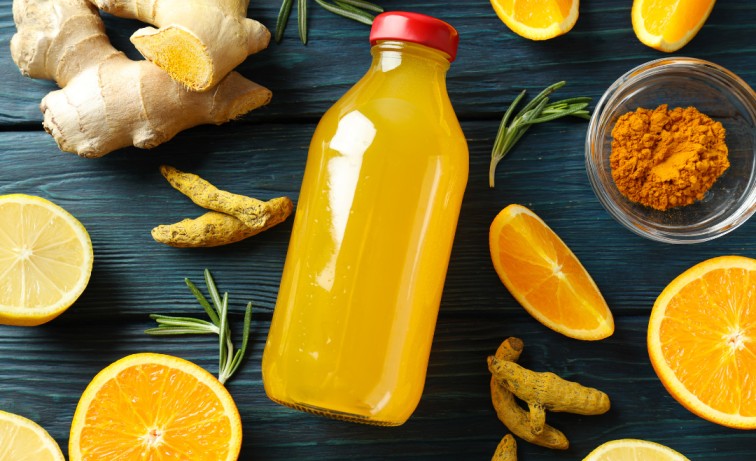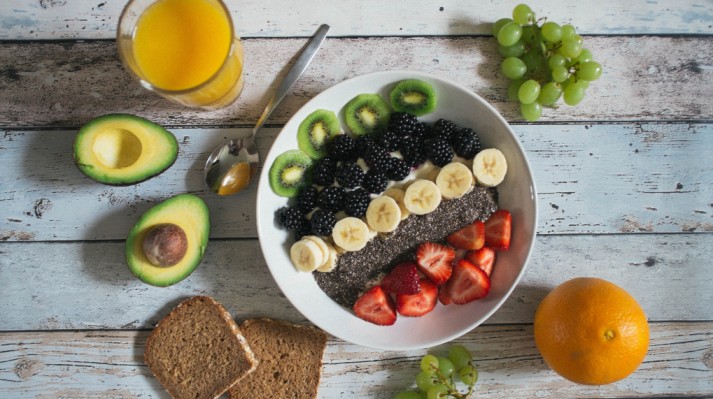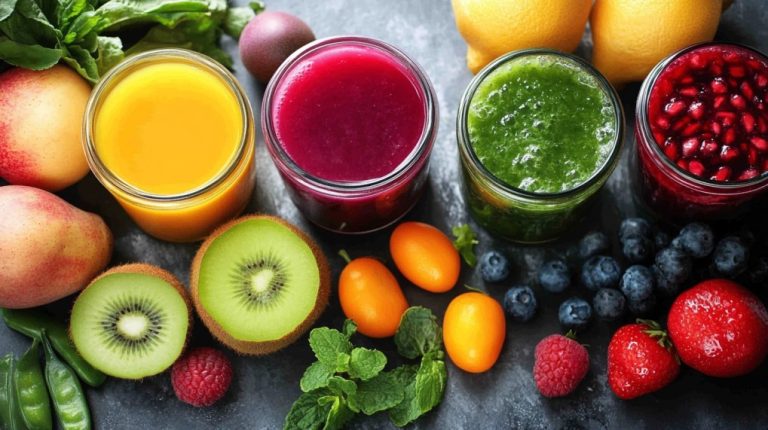As a clinical nutritionist at QUA Nutrition, I’ve had the honor of supporting many people through the complex and crucial process of recovering from surgery. Today, I share with you not only clinical recommendations but also my own lived experience as a clinical nutritionist regarding protein shakes and how they can play a dynamic role in healing, tissue rebuilding, and the overall recovery of the body after surgery.
No matter whether you’re healing from orthopedic surgery, surgery to fix gastrointestinal problems, or cosmetic surgery, one thing is true: nutrition can be your best friend! In particular, I regularly recommend protein shakes for surgery recovery in my nutrition consultations. Here’s why.
Why Protein Is Essential After Surgery
After surgery, your body is under a heavy metabolic load. Extra protein is needed to repair muscles, regenerate skin and tissues, and support the immune system. Studies have shown that a high-protein diet following surgery, particularly one that is tailored to your needs, can reduce complications and shorten healing times.
Here is what happens from a nutrition and metabolism perspective:
- Leucine (from whey) activates muscle protein synthesis.
- Arginine; wound healing is supported with collagen formation and increased blood flow.
- Glutamine, gut recovery, and immune support.
At QUA, we suggested a range of 1.2–2.0g protein/kg body weight daily, depending on the individual’s healing requirements.
What Makes a Good Protein Shake for Recovery?
In my clinical practice, I have directly observed that patients derive the most benefit from their shakes when:
- There’s a least 20-30 grams of high-quality protein.
- The macros are balanced, with carbohydrates and healthy fats.
- The boost with anti-inflammatories (i.e., turmeric, ginger, omega 3s),
- The shake is easy to digest (especially in the case of post-GI surgery patients),
- They include functional nutrients (i.e., vitamin C, zinc, magnesium).
Testimonial: “Eating solids was difficult after my C-section. The customized shakes my QUA nutritionist recommended were essential to me; I could actually feel my strength coming back in each passing day.”
Types of Protein We Recommend at QUA Nutrition
Everyone is an individual, and so are their protein needs. Depending on the type of surgery, bloodwork, how one digests proteins, and which proteins one prefers to eat, here are the 4 most common proteins we prescribe:
- Whey Protein Isolate
This protein is quickly absorbed and is higher in leucine (an important amino acid), which is useful in repairing damaged tissue swiftly. Therefore, we often suggest whey isolate to patients who have had orthopedic or muscle involvement.
- Collagen Peptides
This protein is most important for the repair of the skin, ligaments, and joint tissues. This is really important for patients who have had skin grafts, joint-related surgeries, or cosmetic surgery. This protein should be taken in conjunction with Vitamin C for the best absorption.
- Pea Protein
This protein is useful for the lactose-intolerant patient or those who prefer plant-based proteins. This protein also has a relatively high amount of Arginine, and pea protein is the easiest to digest for the gut.
- Micellar Casein
This is a slowly released protein that is useful before sleeping. Casein protein during sleep supports muscle maintenance during the night and can help keep patients from becoming catabolic during inactivity.
Our Go-To Protein Shake Combinations
Here are shake recipes I’ve recommended countless times during consultations—and used myself during recovery:
Morning: Anti-Inflammatory Whey Smoothie
- 1 scoop whey isolate
- 1/2 cup blueberries
- 1 tsp flaxseeds
- 1/2 tsp turmeric + black pepper
- Almond milk
Midday: Citrus Collagen Refresher
- 1 scoop collagen peptides
- Juice of 1 orange + lemon
- Himalayan salt
- Cold water or coconut water
Evening: Vegan Recovery Shake
- 1 scoop pea protein
- 1/2 banana
- 1 tsp chia seeds
- Oat milk
Night: Casein Sleep Blend
- 1 scoop micellar casein
- Almond butter
- Dash of cinnamon or nutmeg
- Warm plant milk
Testimonial: “The collagen shake recommended by QUA made a world of difference. My wound healed in a flash, and my doctor was amazed by how quickly I healed.”
When to Take Protein Shakes for Optimal Recovery
At QUA, we personalize not only what you take but when you take it:
- Morning: To kickstart the healing metabolism
- After physio sessions: To replenish energy and support muscle regrowth
- Before bedtime: Ensures overnight repair with casein or collagen
We also ensure your overall daily intake supports these timed supplements.
Functional Nutrients We Add to Recovery Shakes
At QUA Nutrition, we use functional nutrition. Here are the various ingredients we could add to enhance recovery, aside from protein:
- L-Glutamine – Aids digestive health and immune function
- Zinc – Effectively heals skin and cellular tissues
- Vitamin C – Builds collagen
- Curcumin extract – Decreases post-operative inflammation
- Omega-3s – Mediate systemic inflammation
These additions are always made with specific blood reports, dietary recall, and surgical history.
Testimonial: “I had no idea nutrition could impact healing so much until I joined QUA. The dietician explained every ingredient in my shake and why it mattered.”
How QUA Nutrition Can Help You Recover Faster
What makes QUA unique is that we will never generalize. Each client gets:
- Tailored recovery plans that are based on the type of surgery and blood markers
- Genetic and microbiome-informed guidance to know what protein to choose
- Nutritionist-led adjustments to shakes each week, based on symptoms
- An anti-inflammatory diet direction that works alongside protein intake
- Supplement plans that fill in the gaps of healing nutrients
This level of personalization is why QUA clients recover more quickly, with fewer complications and improved energy.
Final Thoughts: Fueling Recovery From the Inside Out
Healing is a process. It takes rest, care, and yes—the right fuel. With daily experience working with recovery patients, we have seen how powerful directed protein nutrition can be.
If you or someone you know is recovering from surgery, don’t forget to employ protein shakes as part of the process. With a little direction, protein shakes can be more than a supplement; they can be a component of healing.
Let’s rebuild strength, one shake at a time. Ready to take your recovery seriously?
Connect with a QUA Nutrition expert today and let us build your personalized post-surgery shake plan.
FAQs
- May I begin using protein shakes right after surgery?
Yes, depending on the surgery type and your digestive state. At QUA, we commonly start with lighter shakes and incrementally add concentration.
- What type of protein is best for recovery post-surgical?
Whey isolate, collagen, and pea protein are our top three, based on your surgery type and each protein’s tolerance.
- How long will I take protein shakes post-operatively?
Typically 4-8 weeks, but some clients take them longer for strength and tissue integrity.
- Can protein shakes replace meals?
Yes, especially at the beginning of the recovery period, especially if the appetite is low. We typically transition to whole foods within weeks and use shakes as a boost.
- How is QUA’s process different from regular diet clinics?
QUA incorporates gene-based, gut-based, and conditions-based data to develop a completely personalized post-surgical nutrition plan and protein shake for your specific needs.









